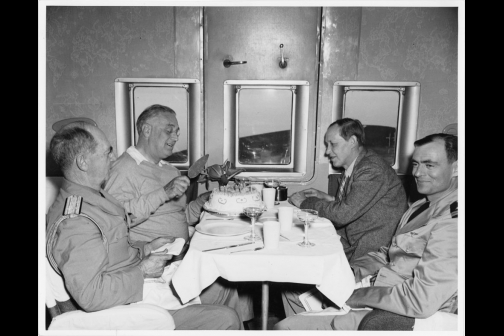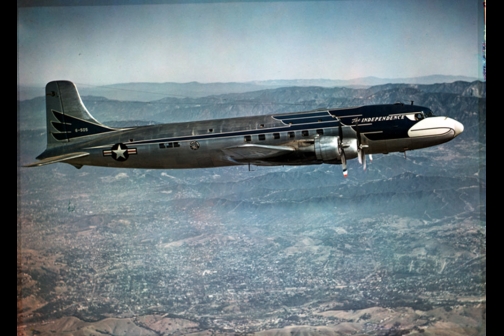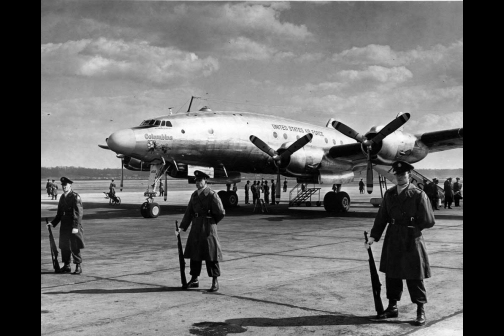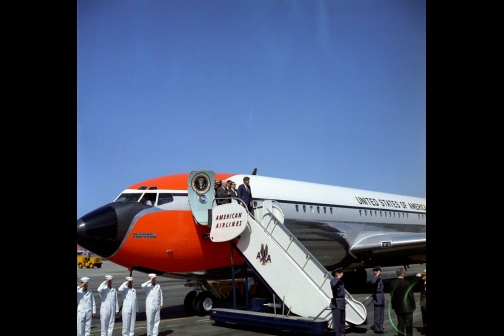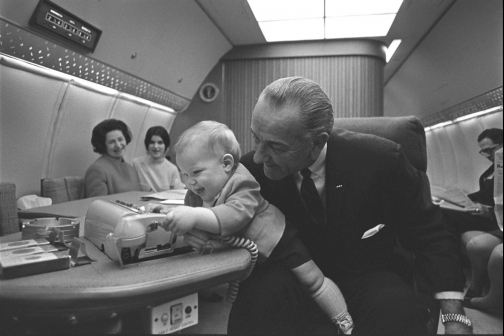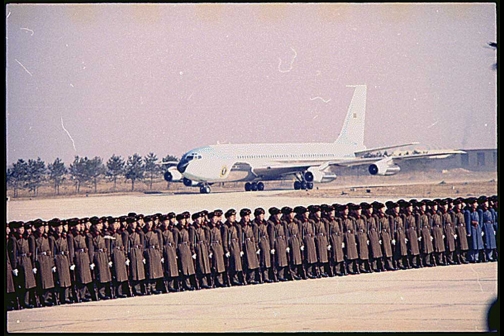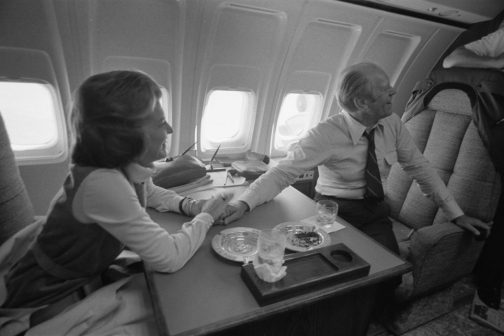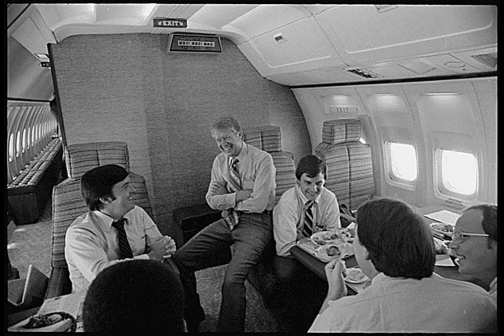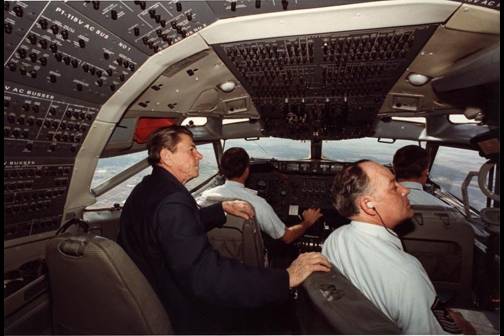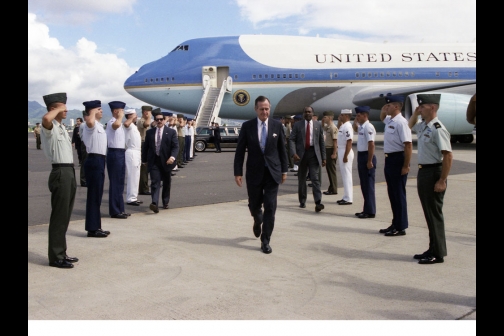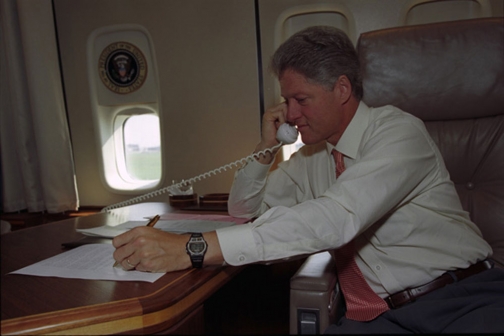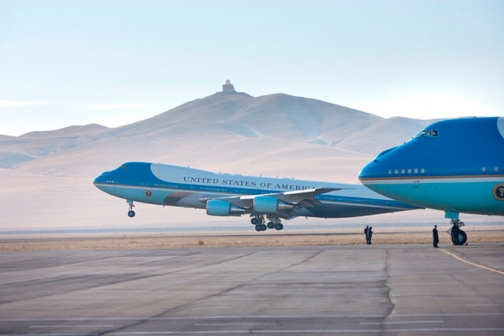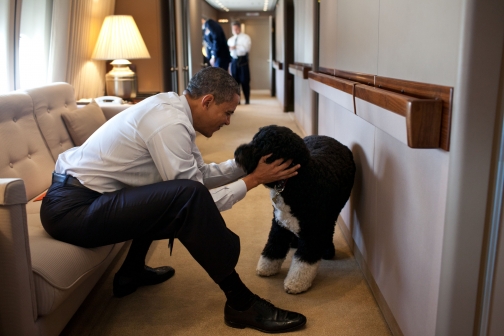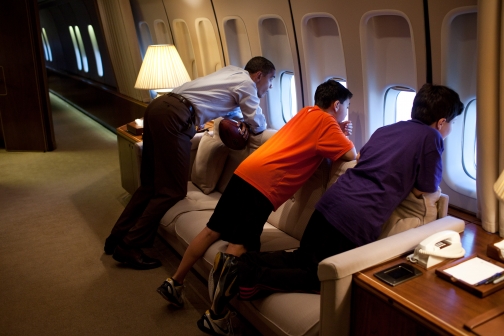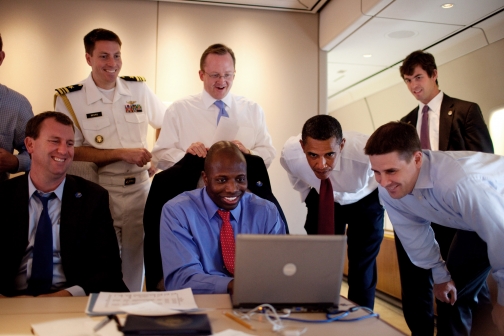Statement by the President
James S. Brady Press Briefing Room
**Please see below for a correction, marked with asterisks.
4:27 P.M. PDT
THE PRESIDENT: Good afternoon, everybody. Earlier today I received an update from my team on two separate issues that I've been following closely -- our ongoing operation in Iraq and the situation in Ferguson, Missouri.
With respect to Iraq, we continue to see important progress across different parts of our strategy to support the Iraqi government and combat the threat from the terrorist group, ISIL. First, our military operations are effectively protecting our personnel and facilities in Iraq. Over the last 11 days, American airstrikes have stopped the ISIL advance around the city of Erbil and pushed back the terrorists. Meanwhile, we have urgently provided additional arms and assistance to Iraqi forces, including Kurdish and Iraqi security forces who are fighting on the front lines.
Today, with our support, Iraqi and Kurdish forces took a major step forward by recapturing the largest dam in Iraq near the city of Mosul. The Mosul Dam fell under terrorist control earlier this month and is directly tied to our objective of protecting Americans in Iraq. If that dam was breached, it could have proven catastrophic, with floods that would have threatened the lives of thousands of civilians and endangered our embassy compound in Baghdad. Iraqi and Kurdish forces took the lead on the ground and performed with courage and determination. So this operation demonstrates that Iraqi and Kurdish forces are capable of working together in taking the fight to ISIL. If they continue to do so, they will have the strong support of the United States of America.
Second, we're building an international coalition to address the humanitarian crisis in northern Iraq. Even as we've worked to help many thousands of Yazidis escape the siege of Mount Sinjar, hundreds of thousands of Iraqis have been displaced by ISIL’s violence and many more are still at risk. Going forward, the United States will work with the Iraqi government, as well as partners like the United Kingdom, Canada, France, Italy and Australia, to get food and water to people in need and to bring long-term relief to people who have been driven from their homes.
Third, we will continue to pursue a long-term strategy to turn the tide against ISIL by supporting the new Iraqi government and working with key partners in the region and beyond. Over the last week, we saw historic progress as Iraqis named a new Prime Minister-Designate Haider al-Abadi, and Iraq’s outgoing Prime Minister Maliki agreed to step down. This peaceful transition of power will mark a major milestone in Iraq’s political development, but as I think we're all aware, the work is not yet done.
Over the next few weeks, Dr. Abadi needs to complete the work of forming a new, broad-based, inclusive Iraqi government, one that develops a national program to address the interests of all Iraqis. Without that progress, extremists like ISIL can continue to prey upon Iraq’s divisions. With that new government in place, Iraqis will be able to unite the country against the threat from ISIL, and they will be able to look forward to increased support not just from the United States but from other countries in the region and around the world.
Let’s remember ISIL poses a threat to all Iraqis and to the entire region. They claim to represent Sunni grievances, but they slaughter Sunni men, women and children. They claim to oppose foreign forces, but they actively recruit foreign fighters to advance their hateful ideology.
So the Iraqi people need to reject them and unite to begin to push them out of the lands that they’ve occupied, as we're seeing at Mosul Dam. And this is going to take time. There are going to be many challenges ahead. But meanwhile, there should be no doubt that the United States military will continue to carry out the limited missions that I've authorized -- protecting our personnel and facilities in Iraq in both Erbil and Baghdad, and providing humanitarian support, as we did on Mount Sinjar.
My administration has consulted closely with Congress about our strategy in Iraq and we are going to continue to do so in the weeks to come, because when it comes to the security of our people and our efforts against a terror group like ISIL, we need to be united in our resolve.
I also want to address the situation in Ferguson, Missouri. Earlier this afternoon, I spoke with Governor Nixon, as well as Senators Roy Blunt and Claire McCaskill. I also met with Attorney General Eric Holder. The Justice Department has opened an independent federal civil rights investigation into the death of Michael Brown. They are on the ground and, along with the FBI, they are devoting substantial resources to that investigation. The Attorney General himself will be traveling to Ferguson on Wednesday to meet with the FBI agents and DOJ personnel conducting the federal criminal investigation, and he will receive an update from them on their progress. He will also be meeting with other leaders in the community whose support is so critical to bringing about peace and calm in Ferguson.
Ronald Davis, the Director of the DOJ’s Office of Community-Oriented Policing Services -- or COPS -- is also traveling to Ferguson tomorrow to work with police officials on the ground. We've also had experts from the DOJ’s Community Relations Service working in Ferguson since the days after the shooting to foster conversations among local stakeholders and reduce tensions among the community.
So let me close just saying a few words about the tensions there. We have all seen images of protestors and law enforcement in the streets. It's clear that the vast majority of people are peacefully protesting. What’s also clear is that a small minority of individuals are not. While I understand the passions and the anger that arise over the death of Michael Brown, giving into that anger by looting or carrying guns, and even attacking the police only serves to raise tensions and stir chaos. It undermines rather than advancing justice.
Let me also be clear that our constitutional rights to speak freely, to assemble, and to report in the press must be vigilantly safeguarded, especially in moments like these. There’s no excuse for excessive force by police or any action that denies people the right to protest peacefully. Ours is a nation of laws for the citizens who live under them and for the citizens who enforce them.
So to a community in Ferguson that is rightly hurting and looking for answers, let me call once again for us to seek some understanding rather than simply holler at each other. Let’s seek to heal rather than to wound each other. As Americans, we've got to use this moment to seek out our shared humanity that's been laid bare by this moment -- the potential of a young man and the sorrows of parents, the frustrations of a community, the ideals that we hold as one united American family.
I’ve said this before -- in too many communities around the country, a gulf of mistrust exists between local residents and law enforcement. In too many communities, too many young men of color are left behind and seen only as objects of fear. Through initiatives like My Brother’s Keeper, I'm personally committed to changing both perception and reality. And already we're making some significant progress as people of goodwill of all races are ready to chip in. But that requires that we build and not tear down. And that requires we listen and not just shout. That's how we're going to move forward together, by trying to unite each other and understand each other, and not simply divide ourselves from one another. We're going to have to hold tight to those values in the days ahead. That's how we bring about justice, and that's how we bring about peace.
So with that, I've got a few questions I'm going to take. I'm going to start with Jim Kuhnhenn of AP.
Q Right here, Mr. President. The incident in Ferguson has led to a discussion about whether it's proper to militarize the nation’s city police forces, and I'm wondering whether you wonder or do you think that -- you see that as a factor regarding the police response in Ferguson. And also, do you agree with the decision by the Governor to send in the National Guard?
THE PRESIDENT: Well, I think one of the great things about the United States has been our ability to maintain a distinction between our military and domestic law enforcement. That helps preserve our civil liberties. That helps ensure that the military is accountable to civilian direction. And that has to be preserved.
After 9/11, I think understandably, a lot of folks saw local communities that were ill-equipped for a potential catastrophic terrorist attack, and I think people in Congress, people of goodwill decided we've got to make sure that they get proper equipment to deal with threats that historically wouldn't arise in local communities. And some of that has been useful. I mean, some law enforcement didn’t have radios that they could operate effectively in the midst of a disaster. Some communities needed to be prepared if, in fact, there was a chemical attack and they didn’t have HAZMAT suits.
Having said that, I think it's probably useful for us to review how the funding has gone, how local law enforcement has used grant dollars, to make sure that what they’re purchasing is stuff that they actually need, because there is a big difference between our military and our local law enforcement and we don't want those lines blurred. That would be contrary to our traditions. And I think that there will be some bipartisan interest in reexamining some of those programs.
With respect to the National Guard, I think it's important just to remember this was a state activated National Guard and so it's under the charge of the Governor. This is not something that we initiated at the federal level. I spoke to Jay Nixon about this, expressed an interest in making sure that if, in fact, a National Guard is used it is used in a limited and appropriate way. He described the support role that they’re going to be providing to local law enforcement, and I'll be watching over the next several days to assess whether, in fact, it's helping rather than hindering progress in Ferguson.
Steve Holland, Reuters.
Q Thank you. How do you avoid mission creep in Iraq? And how long do you think it will take to contain ISIL?
THE PRESIDENT: Well, I have been firm from the start that we are not reintroducing thousands of U.S. troops back on the ground to engage in combat. We're not the Iraqi military. We're not even the Iraqi air force. I am the Commander-in-Chief of the United States armed forces, and Iraq is going to have to ultimately provide for its own security.
On the other hand, we've got a national security interest in making sure our people are protected and in making sure that a savage group that seems willing to slaughter people for no rhyme or reason other than they have not kowtowed to them -- that a group like that is contained, because ultimately they can pose a threat to us.
So my goal is, number one, to make sure we've got a viable partner. And that's why we have so consistently emphasized the need for a government formation process that is inclusive, that is credible, that is legitimate, and that can appeal to Sunnis as well as Shias and Kurds. We've made significant progress on that front, but we're not there yet. And I told my national security team today and I will say publicly that we want to continue to communicate to politicians of all stripes in Iraq, don't think that because we have engaged in airstrikes to protect our people that now is the time to let the foot off the gas and return to the same kind of dysfunction that has so weakened the country generally.
Dr. Abadi has said the right things. I was impressed in my conversation with him about his vision for an inclusive government. But they’ve got to get this done, because the wolf is at the door and in order for them to be credible with the Iraqi people they’re going to have to put behind some of the old practices and actually create a credible, united government.
When we see a credible Iraqi government, we are then in a position to engage when planning not just with the Iraqi government but also with regional actors and folks beyond the Middle East so that we can craft the kind of joint strategy -- joint counterterrorism strategy that I discussed at West Point and I discussed several years ago to the National Defense College University**. Our goal is to have effective partners on the ground. And if we have effective partners on the ground, mission creep is much less likely.
Typically what happens with mission creep is when we start deciding that we’re the ones who have to do it all ourselves. And because of the excellence of our military, that can work for a time -- we learned that in Iraq -- but it’s not sustainable. It’s not lasting. And so I’ve been very firm about this precisely because our goal here has to be to be able to build up a structure not just in Iraq, but regionally, that can be maintained, and that is not involving us effectively trying to govern or impose our military will on a country that is hostile to us.
Q How long to contain ISIL then? It sounds like a long-term project.
THE PRESIDENT: Well, I don't think, Steve, at this point I’m prepared to provide a blanket answer to that. A lot of it depends on how effectively the Iraqi government comes together. I think that you will see if, in fact, that government formation process moves rapidly and credibly that there will be a lot of actors in the region and around the world that are prepared to help and to step up assistance -- many of whom may have been reticent over the last several years because the perception was, at least, that Baghdad was not being inclusive and that it was going to be self-defeating to put more resources into it.
I think you’ll see a lot of folks step up; suddenly now Iraq will have a variety of partners. And with more folks unified around the effort, I think it’s something that can be accomplished. It also means that there’s the prospect of Sunni tribes who are the primary residents of areas that ISIL now controls saying, we’ve got a viable option and we would rather work with a central government that appears to understand our grievances and is prepared to meet them rather than to deal with individuals who don't seem to have any values beyond death and destruction.
I’m going to take the last question from somebody, who after 41 years, I understand has decided to retire -- Ann Compton, everybody here knows is not only the consummate professional but is also just a pleasure to get to know. I was proud to be able to hug her grandbaby recently. And I suspect that may have something to do with her decision. But I just want to say publicly, Ann, we’re going to miss you, and we’re very, very proud of the extraordinary career and work that you’ve done, and we hope you’re not a stranger around here. (Applause.)
Q Thank you very much.
THE PRESIDENT: Ann Compton. I suspect you may get some cake at some point. (Laughter.)
Q Let me ask you, this is an interesting time in your presidency. And one of the things that you have so emphasized in the last few months, the last year or so, is this reach out to brothers -- My Brother’s Keeper and to a generation that doesn't feel that it has much chance. Sending the Attorney General to Ferguson is a step. Has anyone there -- have you considered going yourself? Is there more that you personally could do not just for Ferguson but for communities that might also feel that kind of tension and see it erupt in the way it has in Ferguson?
THE PRESIDENT: Well, Ann, obviously, we’ve seen events in which there’s a big gulf between community perceptions and law enforcement perceptions around the country. This is not something new. It’s always tragic when it involves the death of someone so young.
I have to be very careful about not prejudging these events before investigations are completed because, although these are issues of local jurisdiction, the DOJ works for me and when they're conducting an investigation I’ve got to make sure that I don't look like I’m putting my thumb on the scales one way or the other. So it’s hard for me to address a specific case beyond making sure that it’s conducted in a way that is transparent, where there’s accountability, where people can trust the process, hoping that as a consequence of a fair and just process, you end up with a fair and just outcome.
But as I think I’ve said in some past occasions, part of the ongoing challenge of perfecting our union has involved dealing with communities that feel left behind, who, as a consequence of tragic histories, often find themselves isolated, often find themselves without hope, without economic prospects. You have young men of color in many communities who are more likely to end up in jail or in the criminal justice system than they are in a good job or in college. And part of my job that I can do I think without any potential conflicts is to get at those root causes.
Now, that's a big project. It’s one that we’ve been trying to carry out now for a couple of centuries. And we’ve made extraordinary progress, but we have not made enough progress. And so the idea behind something like My Brother’s Keeper is can we work with cities and communities and clergy and parents and young people themselves all across the country, school superintendents, businesses, corporations, and can we find models that work that move these young men on a better track?
Now, part of that process is also looking at our criminal justice system to make sure that it is upholding the basic principle of everybody is equal before the law.
And one of the things that we’ve looked at during the course of where we can -- during the course of investigating where we can make a difference is that there are patterns that start early. Young African American and Hispanic boys tend to get suspended from school at much higher rates than other kids, even when they're in elementary school. They tend to have much more frequent interactions with the criminal justice system at an earlier age. Sentencing may be different. How trials are conducted may be different. And so one of the things that we’ve done is to include the Department of Justice in this conversation under the banner of My Brother’s Keeper to see where can we start working with local communities to inculcate more trust, more confidence in the criminal justice system.
And I want to be clear about this, because sometimes I think there’s confusion around these issues and this dates back for decades. There are young black men that commit crime. And we can argue about why that happened -- because of the poverty they were born into and the lack of opportunity, or the schools systems that failed them, or what have you. But if they commit a crime, then they need to be prosecuted because every community has an interest in public safety. And if you go into the African American community or the Latino community, some of the folks who are most intent on making sure that criminals are dealt with are people who have been preyed upon by them.
So this is not an argument that there isn’t real crime out there, and that law enforcement doesn't have a difficult job and that they have to be honored and respected for the danger and difficulty of law enforcement. But what is also true is that given the history of this country, where we can make progress in building up more confidence, more trust, making sure that our criminal justice system is acutely aware of the possibilities of disparities in treatment, there are safeguards in place to avoid those disparities, where training and assistance is provided to local law enforcement who may just need more information in order to avoid potential disparity -- all those things can make a difference.
One of the things I was most proud of when I was in the state legislature, way back when I had no gray hair and none of you could pronounce my name, was I passed legislation requiring videotaping of interrogations and confessions and I passed legislation dealing with racial profiling in Illinois. And in both cases, we worked with local law enforcement. And the argument was that you can do a better job as a law enforcement official if you have built up credibility and trust. And there are some basic things that can be done to promote that kind of trust. And in some cases, there’s just a lack of information, and we want to make sure that we get that information to law enforcement.
So there are things that can be done to improve the situation. But short term, obviously, right now what we have to do is to make sure that the cause of justice and fair administration of the law is being brought to bear in Ferguson. In order to do that, we’ve got to make sure that we are able to distinguish between peaceful protesters who may have some legitimate grievances and maybe longstanding grievances, and those who are using this tragic death as an excuse to engage in criminal behavior -- and tossing Molotov cocktails, or looting stores. And that is a small minority of folks and may not even be residents of Ferguson, but they are damaging the cause; they're not advancing it.
All right? Thank you very much, everybody.
END
4:54 P.M. EDT

